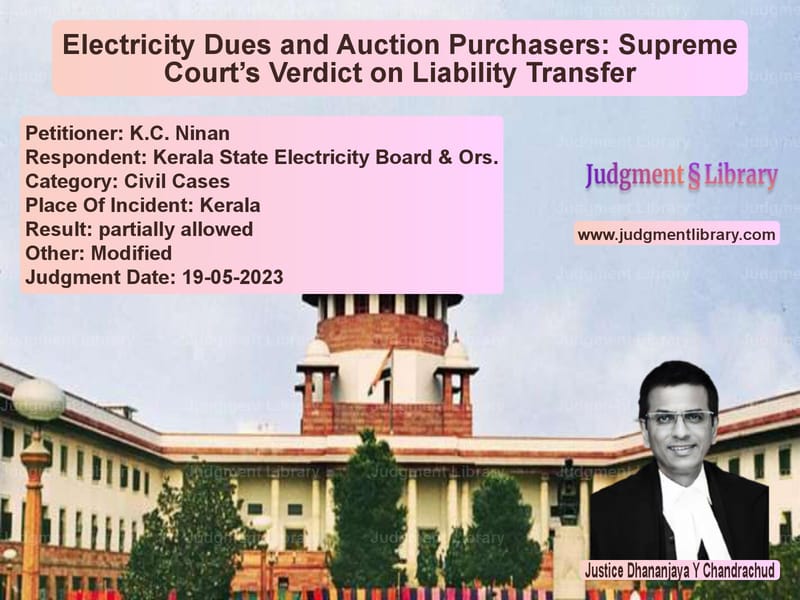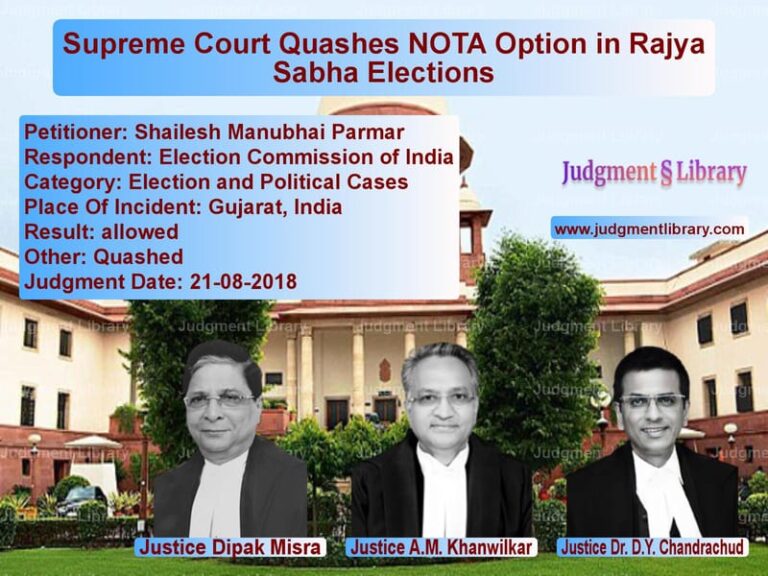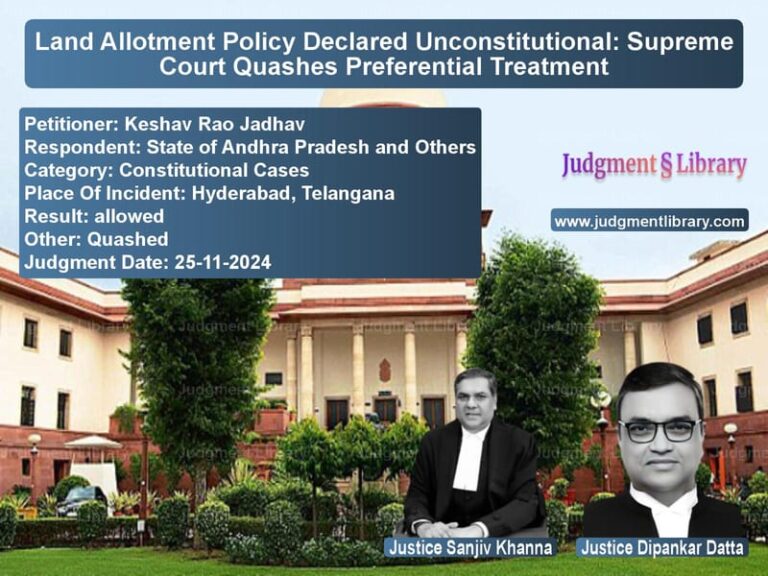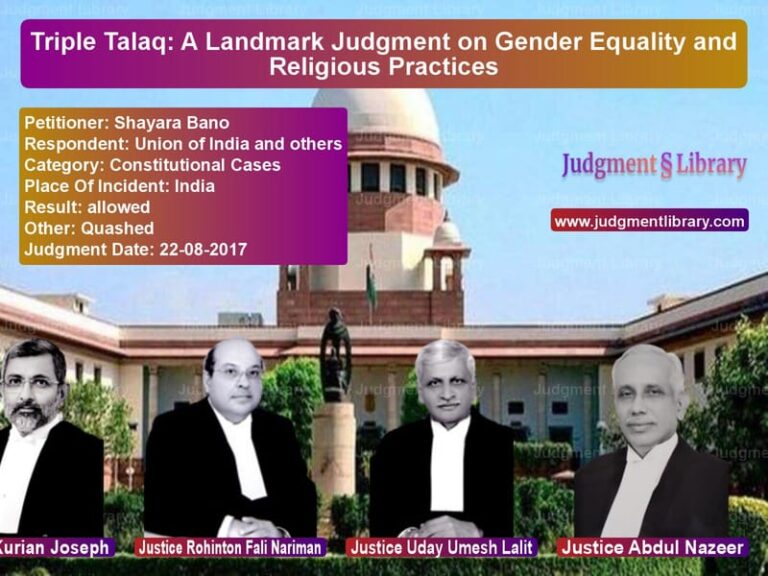Electricity Dues and Auction Purchasers: Supreme Court’s Verdict on Liability Transfer
The Supreme Court recently delivered a significant ruling on the liability of electricity dues in cases where properties are auctioned due to the previous owner’s default. The case involves multiple appeals questioning whether electricity arrears of an erstwhile owner can be imposed on a new owner purchasing the property through auction sales.
Background of the Case
The batch of cases under review follows a common pattern: electricity supply was discontinued due to the failure of previous owners to clear their dues. The properties were then auctioned, and the new owners applied for fresh electricity connections. The electricity utilities refused to grant these connections unless the new owners cleared the arrears left by their predecessors.
These refusals led to multiple legal battles across different states, with the High Courts delivering conflicting judgments. The appeals in the Supreme Court were aimed at resolving the broader question of whether statutory provisions or electricity board regulations could transfer the liability of unpaid electricity bills from a former owner to a new purchaser.
Key Issues Before the Court
- Whether electricity dues constitute a charge on the property, binding the subsequent owner.
- Whether a new electricity connection sought by an auction-purchaser is a fresh connection or a reconnection.
- The legal authority of electricity boards to deny new connections based on unpaid dues of previous consumers.
- Whether state regulatory commissions have the power to enact conditions that impose past dues on new purchasers.
- The implications of an auction-sale on an “as is where is” basis with respect to electricity dues.
Arguments by the Electricity Boards
The electricity utilities argued that:
- Electricity supply is linked to premises rather than an individual consumer.
- The duty to provide new connections is not absolute but subject to compliance with state electricity supply codes.
- The liabilities of past owners should be recoverable from new purchasers under regulatory provisions.
- Many auction notices included explicit references to unpaid electricity dues, putting purchasers on notice.
- Allowing fresh connections without clearing past dues would lead to losses that burden other consumers.
Arguments by the Auction Purchasers
The auction purchasers contended that:
- Electricity is a consumable good and does not create an encumbrance on property.
- They had no contractual relationship with the electricity boards regarding the previous owner’s dues.
- The duty to provide electricity is enshrined under Section 43 of the Electricity Act, 2003.
- Requiring them to pay past dues is arbitrary and unfair.
- The doctrine of “caveat emptor” (buyer beware) does not apply to statutory liabilities not explicitly imposed.
Supreme Court’s Analysis
Electricity Supply and Ownership
The Supreme Court clarified that electricity is supplied to a consumer, not merely to premises. Thus, a new owner, applying for a fresh connection, should not automatically inherit liabilities from the previous occupant.
Legal Authority of State Regulations
The Court examined various state-specific electricity regulations and found that some explicitly allow recovery of past dues from new owners. The Court upheld the validity of such regulations where they exist but ruled that new owners cannot be held liable in states where no such provisions exist.
Charge on Property
The Court ruled that electricity dues do not automatically become a charge on the property unless a specific law states so. A statutory charge must be explicitly created by legislation, not by subordinate rules or conditions of supply.
Implications of Auction-Sales
The Court examined cases where properties were sold under the condition of “as is where is.” It held that such terms do not inherently impose liability for past electricity dues unless explicitly stated in the auction notice.
Time Limit for Recovery
The Court referred to Section 56(2) of the Electricity Act, which limits the recovery period for electricity dues to two years unless the amount has been continuously shown as recoverable. It ruled that claims beyond this period cannot be enforced through disconnection but may still be pursued through civil remedies.
Final Judgment
The Supreme Court laid down the following principles:
- If a state’s electricity supply code specifically allows recovery of dues from new owners, the liability can be imposed.
- If no such statutory provision exists, new owners cannot be compelled to clear past dues.
- Electricity boards cannot treat unpaid dues as a charge on the property unless the law explicitly provides for it.
- Where auction notices explicitly mention the buyer’s responsibility for dues, the liability can be enforced.
- The time limit under Section 56(2) applies to disconnection but not to civil recovery of dues.
Conclusion
The Supreme Court’s ruling clarifies a long-standing dispute affecting property transactions and electricity supply. By balancing the interests of electricity utilities and property purchasers, the judgment ensures fairness while preventing financial losses to power companies. It reinforces the importance of due diligence in property purchases while upholding the principle that liabilities should not be arbitrarily transferred in the absence of a statutory mandate.
Petitioner Name: K.C. Ninan.Respondent Name: Kerala State Electricity Board & Ors..Judgment By: Justice Dhananjaya Y Chandrachud.Place Of Incident: Kerala.Judgment Date: 19-05-2023.
Don’t miss out on the full details! Download the complete judgment in PDF format below and gain valuable insights instantly!
Download Judgment: k.c.-ninan-vs-kerala-state-electri-supreme-court-of-india-judgment-dated-19-05-2023.pdf
Directly Download Judgment: Directly download this Judgment
See all petitions in Contract Disputes
See all petitions in Property Disputes
See all petitions in Consumer Rights
See all petitions in Debt Recovery
See all petitions in Judgment by Dhananjaya Y Chandrachud
See all petitions in partially allowed
See all petitions in Modified
See all petitions in supreme court of India judgments May 2023
See all petitions in 2023 judgments
See all posts in Civil Cases Category
See all allowed petitions in Civil Cases Category
See all Dismissed petitions in Civil Cases Category
See all partially allowed petitions in Civil Cases Category







